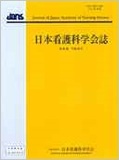Japanese
English
- 販売していません
- Abstract 文献概要
- 参考文献 Reference
要旨
目的:助産師が妊婦の性生活に関する健康教育を行うという行動と,その意図について,意図を強化する影響要因,行動への影響要因を明らかにした.
方法:助産師184名に対して,TPBを用いて作成した質問紙調査を行った.調査項目は,属性と,個別・集団の健康教育についての「意図」「行動」「必要性の認識」「ネガティブな気持ち」「助産師からの期待」「対象からの期待」「能力の自信」「妨げとなる環境」である.
結果:個別健康教育では「必要性の認識」と「助産師からの期待」で「意図」を約60%説明し,「助産師からの期待」と「能力の自信」で「行動」を約51%説明した.集団健康教育では「必要性の認識」のみで「意図」を約75%説明し,「意図」と「能力の自信」で「行動」を約42%説明した.
結論:意図は,個別・集団健康教育ともに必要性の認識によって強化されていた.行動は,個別健康教育では助産師からの期待と能力の自信,集団健康養育では意図と能力の自信が影響していた.
Purpose: This study aimed to clarify influence factors involved in midwives' behavior providing sexual education for pregnant woman and its intention to enhance one's intention and influence factors on activity.
Method: The study conducted a questionnaire survey with use of TPB for 184 midwives. The survey items were “Intention”, “Behavior”, “Recognition of necessity”, “Negative emotion”, “Expectation from midwives”, “Expectation from patients”, “Confidence on ability”, and “Environment as an obstacle” regarding attribute and individual/group sexual education.
Result: In the individual sexual education, “Intention” could be explained approximately 60% by “Recognition of necessity” and “Expectation from midwives”, and “Behavior” could be explained approximately 51% by “Expectation from midwives” and “Confidence on ability”. In the group sexual education, “Intention” could be explained approximately 75% only by “Recognition of necessity”, and “Behavior” could be explained approximately 42% by “Intention” and “Confidence on ability”.
Copyright © 2016, Japan Academy of Nursing Science. All rights reserved.


